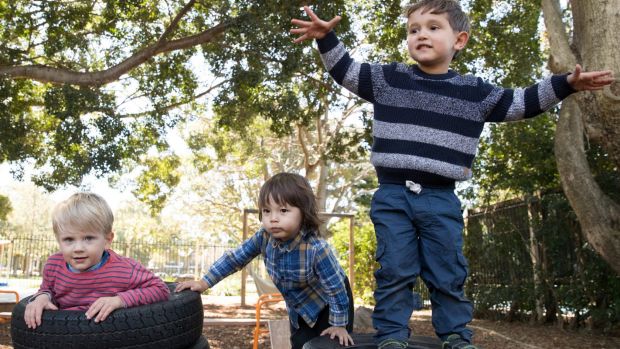Australia/ September 12, 2017/By: Pallavi Singhal/ Source: http://www.smh.com.au
Gayle King spends the same on preschool for her three-year-old son Harry as she does on her mortgage, but she said she sees it as an important investment in his education.
«One salary goes to paying for childcare, it costs us $130 a day,» said Mrs King, 36, who works as an accountant.
However, she and her husband have been paying for preschool since Harry was one, and Mrs King said she has seen major improvements in his language, maths and social skills in the past two years.
Mrs King said she has noticed a big difference between Harry’s development and that of friends’ children who don’t attend preschool.

Gayle King said she has seen major improvements in her son Harry’s language, maths and social skills since she enrolled him in preschool. Photo: Janie Barrett
«Their vocabularies are a lot lower than [Harry’s] and their social skills are just behind,» Mrs King said.
However, far more children in NSW are missing out on early education in the year before school than any other state or territory, a new report released by peak advocacy group Early Childhood Australia has found.
NSW is the only state that has not yet met the national target of having 95 per cent of children enrolled in preschool for a year before they begin school, according to the 2017 State of Early Learning in Australia report.
The lag persists despite evidence showing that students who attend a quality preschool program are up to 40 per cent ahead of their peers in standardised tests by year 3 and half as likely to be behind in any of five key development areas, the report states.
The report also finds that Australia is lagging behind other OECD countries in this measure, and is ranked among the bottom third of nations for rates of early childhood education at the age of three and just below the OECD average for enrolment among four-year-olds.
«We’re not doing well overall in educational performance, [Programme of International Student Assessment] results are not favourable to Australia,» chief executive of Early Childhood Australia Samantha Page said, referring to the country’s declining results in the international science, reading and maths tests for 15-year-olds.
«I don’t think we’ve been quick enough to realise the significance of early learning for long-term educational outcomes and we’ve fallen behind. What we need to do is work on affordability and participation,» she said.
The report finds that a family earning $35,000 a year spent nearly 46 per cent of their disposable income on full-time childcare before subsidies were taken into account. This fell to about 12 per cent for a low-income family after accounting for subsidies, compared to 7.4 per cent for a high-income family.
Ms Page said that the NSW government’s $217 million investment into community preschools that provide 600 hours of education in the year before school, which extends the Start Strong program to 2021, will likely improve the state’s participation rates in the coming years.
Chief executive of early education provider Gowrie NSW Lynne Harwood said the children who are currently missing out on preschool are often those who are already disadvantaged.
«They are already starting behind the eight ball and not having access to early education puts them even further behind, so it’s like a double whammy,» Mrs Harwood said.
Emma Teres, who has enrolled her five-year-old son Anthony in part-time day care since he was six months old and her three-year-old twins Thomas and Christopher since they were one, said she would «ideally» enrol them full-time if it was more affordable.
«Anthony and Thomas have both been diagnosed with autism and they’ve gained in confidence education-wide, they are able to work in group settings and they’re learning different things to what a parent could ever show them at home, it just prepares them for school,» said Mrs Teres, 37, who used to work in the anti-money laundering department at a major bank.
«The main reason I haven’t enrolled them full-time and returned to work is that my salary wouldn’t be enough to justify paying for them to be in day care,» Mrs Teres said.
«But I believe every child should be in childcare even if it’s just for a few days, and the earlier you can get them in the better.»








 Users Today : 11
Users Today : 11 Total Users : 35402984
Total Users : 35402984 Views Today : 13
Views Today : 13 Total views : 3332186
Total views : 3332186